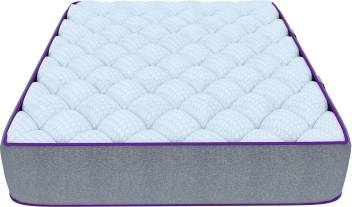Isn’t it true that everyone should get around eight hours of sleep every night? If you have a chronic condition, you may need more rest to feel awake and refreshed in the morning. A lack of rest worsens severe pain, and extreme stress impairs your capacity to sleep. Some experts believe that fibromyalgia is connected to sleep problems. Proper Mattresses can make a good night’s sleep. To get the best one as per your requirements, go here. The following recommendations are designed to help people with chronic pain choose the best mattress for sleep quality and back support:
Don’t automatically think that firm mattresses are preferable: Many patients with chronic pains have been advised repeatedly to lay on harder mattresses to decrease discomfort. Even though you’ve been instructed to rest on hard or firm bedding, it might not be the ideal option for everyone who suffers from chronic pain. Your preferences ultimately determine the hardness you select, but you may also use your normal sleeping position as a reference. There’s a line to be drawn between firm feel and firm support. You want solid support that is also pleasant. Your preference will decide your level of comfort.
Simply rotating the mattress might help you feel better: You’ve probably heard that you should turn or flip the mattress regularly. But how frequently should you do it? That is dependent on your mattress and how long you’ve owned it. There are no hard and fast rules on how often you should alter the position of the mattress. Mattress manufacturers may provide precise suggestions ranging from rotating or flipping the mattress every three months or annually.
Consult your doctor to see what they think: If you have a neck or back problem, visit your physician or physical therapist to see what they suggest. While lying on the mattress, try to keep your neck and low back in a neutral posture. This encourages proper spinal alignment. While physicians are not mattress specialists, they are familiar with your medical records and may provide helpful advice in this regard.
Remember that a greater price often does not imply a higher level of quality: It’s easy to believe that the higher the price, the nicer the mattress. However, a hefty price tag doesn’t automatically imply excellent quality—and it doesn’t mean that you’ll find the mattress agreeable. Investigate the materials and follow your gut instincts.
Body position during sleeping: Which mattress is ideal for back pain is largely determined by one important factor- sleeping position. The best mattresses for back pain are designed with your sleeping posture in mind, whether you’re a back sleeper, side sleeper, or stomach sleeper. Experts recommend that side sleepers get a little softer mattress, back sleepers select a medium-firm mattress, and stomach sleepers choose a moderately firm mattress.
Know when it’s time to replace your mattress: If your existing mattress is obviously sagging in the centre or is no longer comfy, it’s time to replace it. Placing boards beneath a drooping mattress to keep it from sinking in the centre is simply a temporary fix; a new bed mattress is still necessary.
Bear in mind that there’s no such thing as a one-size-fits-all mattress for a back or hip pain. Remember that every person is unique. There’s no single answer to which mattress is ideal for back pain because each mattress has benefits and drawbacks. Instead, it would help if you did your research, buy the mattress you feel would fit your needs, and try them out for a few nights. The best mattress stores offer a trial period. After that, you may decide which one to buy.





